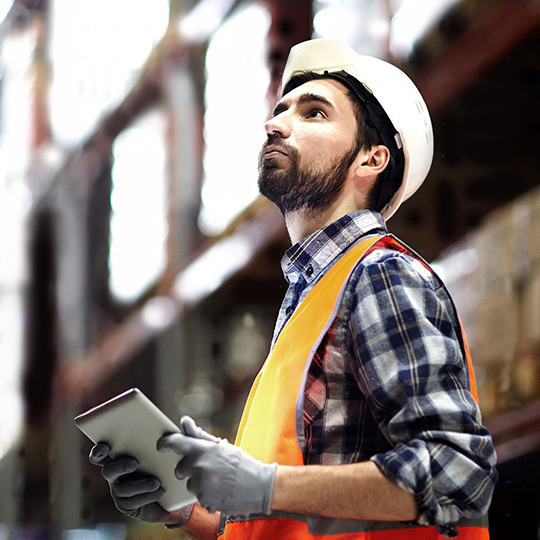Logistics management can be a paper-heavy part of any business. It’s a key part of the supply chain that plans, implements and controls the flow and storage of goods, services and everything in between. Keeping the logistics department organised and secure is fundamental to how a business operates. If you can’t keep your operations running smoothly, then the subsequent disruption can be extremely harmful to the entire business, both financially and reputationally.
Unsurprisingly then, this can involve a monumental amount of paper documents that need both processing and storing. There are, however, a number of tactics for achieving a paper-free environment while helping to improve organisational productivity in logistics departments:
Digital signatures
According to Software Advice, 77% of consumers have digitally signed a form three or more times over the past three years. If a business is constantly in need of signatures as a form of identification or security protocol, just like a logistics department, then adopting electronic signatures is a no brainer.
And you needn’t worry about security either. Digital signatures can remove any concern by having your electronic identity and signing credentials verified by a third-party company. This is called a Certificate Authority and can ensure that the person deploying the signature is who they say they are and is a legitimate member of the company you represent.
The amount of time spent processing contracts will also be cut down dramatically. This will allow for more business projects and deals to be finalised in a timely manner, plus if you handle multiple documents at once, you don’t need to sign them all individually. Instead, you can digitally sign several at once with only a couple of clicks of your mouse.
Electronic invoices
The more a business owner spends on accounting, the less time they will have to spend on developing their business and providing excellent customer service. In a logistics department, rifling through stacks of invoices can take time, and ensuring they are all stored correctly and safely is an equally painstaking task.
By digitising your invoices and using only electronic ones, you can reduce human error while improving productivity. Building an automation into the invoicing process makes it possible to integrate accounting or cloud software too. Payees can easily update online fields and totals based on any changes from customers, terms can be automatically imported, as can recurring charges and payment options can be included as part of the invoice.
The time and space your logistics department can save by turning to electronic invoices is therefore invaluable.
Digitisation of files and documents
Aside from the space and physical storage your logistics department would save by digitising files and documents, digitalisation also helps employers save on labour costs. Something that can dramatically help smooth your work process.
Digital documents, stored in centralised systems such as the Cloud, are much easier to track down. All it takes is a few clicks, meaning less time sifting through tonnes of paperwork. Your workspace organisation is made easier, with no need for huge filing cabinets or intricate filing systems, as everything is made available in one place.
Additionally, because of paper’s lack of data visibility and the relatively recent introduction of GDPR laws, storing files and documents safely with increased levels of security is a necessity. Digitising your files makes that a lot easier than if you were still dealing with paper copies.
Digitisation of consignment notes
Paper consignment notes have been a problem to the logistics industry for many years now. Consignment notes, or CMRs as they are sometimes called, act as a receipt of goods in the road transport sector when it comes to long distance transport or delivery. They remain one of the key documents for cross-border operations.
They are particularly used when it comes to the import or export of goods, and they exist as proof that the delivery has been successfully completed. They also determine the scope and responsibility for the operation performed and identify the parties involved as well as the cargo.
Whether it’s the loss of consignment notes or drivers being buried under an avalanche of paper; paper copies of consignment notes do come with risks. But by turning to digital consignment notes, the process of validating deliveries can be sped up. Paperless processes move at the speed of data, so once a package has been delivered, the organisation is instantly informed.
According to ABC, there are 16.5 million transport vehicles operating in Europe, and the transport industry uses a monumental 33 million sheets of paper a year. By turning to e-CMR, they can reduce the impact of the transport industry on the environment while still retaining all the benefits that come with the paper-based form of the consignment notes, such as harmonising contractual conditions for goods transported by road and facilitating goods transport overall.
For logistics departments, maintaining the flow of operations is vital to the success of the business as a whole. By turning away from paper solutions and digitising the way the department operates, helps increase transparency, accuracy and the speed needed in the industry.For logistics departments, maintaining the flow of operations is vital to the success of the business as a whole. By turning away from paper solutions and digitising the way the department operates, helps increase transparency, accuracy and the speed needed in the industry. Digitisation will directly benefit the road transport operator and the wider logistics industry while saving time and money.

The first three documents you should make paperless copies of
As the digital transformation continues to bring sweeping changes across all industries, paperless environments are becoming the new norm. Companies cannot wait until tomorrow to make a digital copy of their most important documents.
Three Documents Resisting Paperless Revolution
Paperless environments





